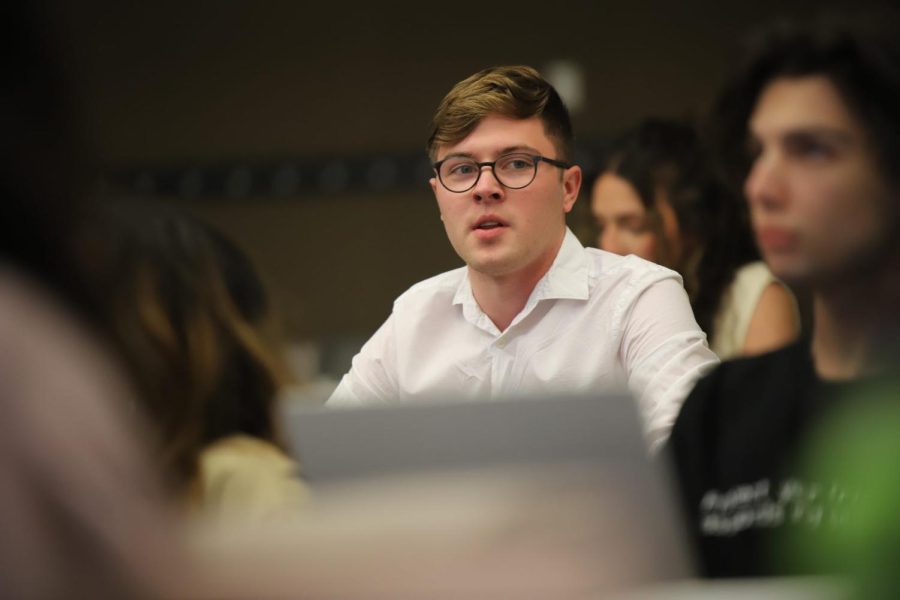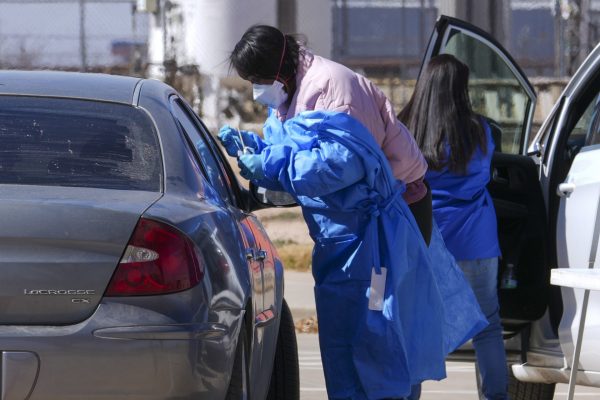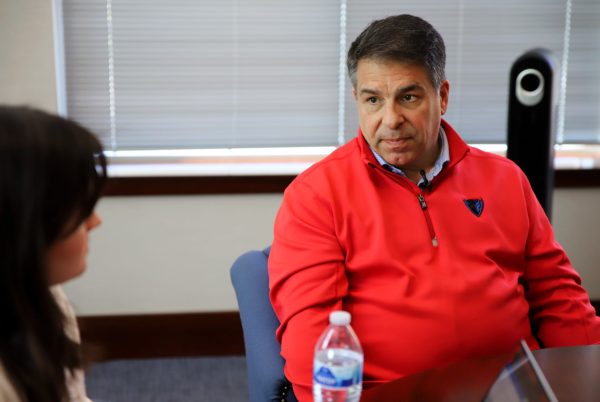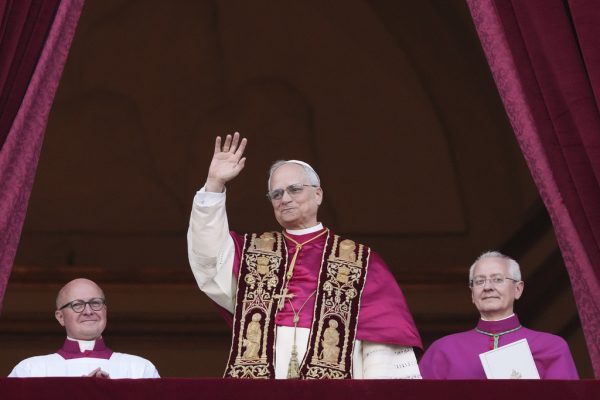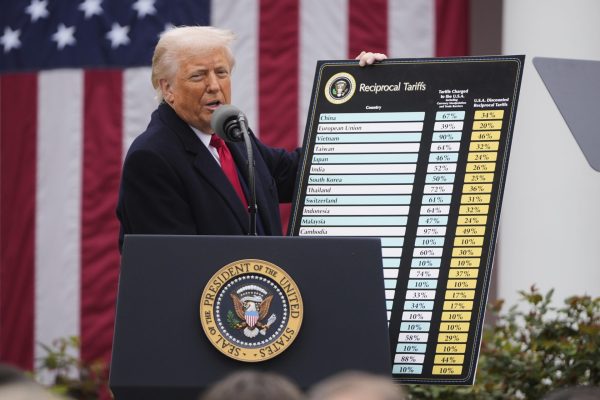SGA members launch campaigns in run up to May election
Avery Schoenhals, Student Government Association (SGA) EVP of Facility Operations and sophomore, is running for SGA president for 2023 to 2024.
The Student Government Association (SGA) elections will open for voting on May 1 after weeks of campaigning and election marketing from aspiring and current SGA members. The upcoming election calls into question the success of SGA’s initiatives to increase voter turnout after past years’ low ratings and participation from candidates.
“This year has been just starting from the ground up again from Covid-19 and social media,” said Magoli Garcia, SGA vice president and junior. “That takes time but it’s also about trial and error. I’m excited to see how our initiatives are going to play out during this election season.”
Two positions, senator for first year students, who is elected in the fall quarter, and chief of staff, who is appointed are the only roles not on the voting registry this spring.
A finalized list of candidates will be available in late April on SGA’s election website.
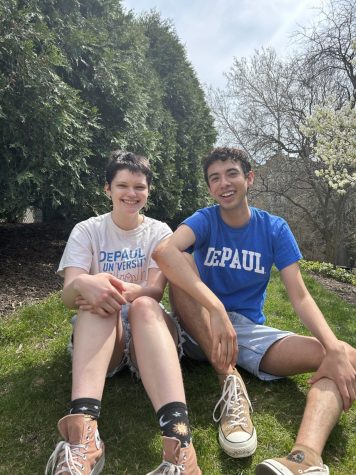
“Our main job as EVPs is to help guide and lead senators,” said Adora Alava, SGA EVP for Diversity and Equity and junior. “EVPs have their own committees where senators help promote the initiatives in them. It’s all dependent on what community they serve for, so like the senators for first-generation students and the senator for LGBTQ+ students both go in my committee.”
SGA used passive marketing tactics such as flyers, yard signs and sidewalk chalk to increase awareness about the election.
Alava said she expects to see more students running for positions because of the university’s current budget issues and students’ drive to improve DePaul. She also said the competition and awareness will also help increase student voting rates.
“There’s more emphasis and need for people to pay attention to who they vote for because we do have the privilege of having individual conversations with administration,” Alava said. “Our only job is to empower and amplify student voices. Representation does matter and I think there will be more communication and transparency with the university if we strengthen that.”
There will be a Meet the Candidates session on May 1 through Zoom for students to hear from their potential representatives. Candidates are encouraged to begin campaigning prior to this via social media and flyers on-campus.
Garcia said her advice for students campaigning is to focus on in-person engagement as much as social media pushes. She said both are great ways to spread information and knowledge about a person’s campaign, but in-person meetings with clubs or organizations can also help foster more meaningful connections.
“It means something when people put a face to a name, but when they’re also able to recognize and understand you as a person, they’re able to support you even more,” Garcia said. “Title isn’t everything. It’s about the engagement you have with the community that shows your character.”
Garcia will not be running for any SGA position in this election and expects the ballots for president and vice president to be one of the most competitive.
“In a position such as the presidency, which has such a large time requirement, I didn’t want to sign up for something that I wasn’t going to be able to give 110% to,” Garcia said. “It wasn’t an easy decision or one I made overnight. In order to be a great representative for students, they deserve someone who can give 110% to advocate for them and their needs.”
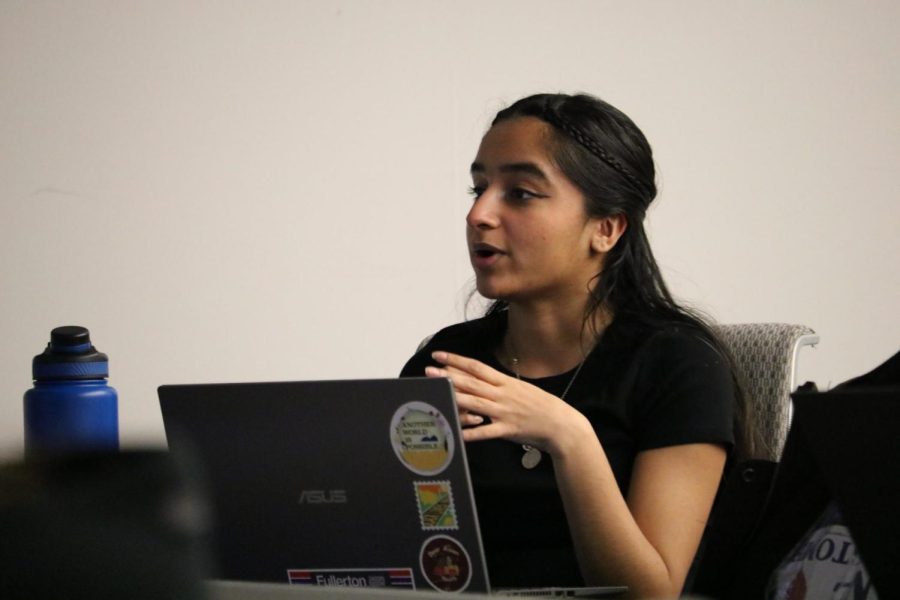
Sergio Godinez, SGA EVP for academic affairs and junior, will be running for SGA president in the upcoming election. He will be sharing the ballot with SGA senator for disabled students, Chloe Crosby, as the vice president. Parveen Mundi, SGA EVP for student affairs and sophomore, and Avery Schoenhals, SGA EVP for facility operations and sophomore, announced their campaign for SGA president and SGA vice president respectively through their social media on April 14.
Godinez’s campaign will be based on his goals for increased transparency between the university and the student body.
“In the past, SGA had a bit of trouble engaging and connecting with students,” Godinez said. “I want to make sure SGA is a public-facing institution that students are aware of and feel comfortable reaching out to in times of need. We need to make sure everyone is on the same page with issues about the budget or a host of other issues we could be facing next year.”
The SGA president is the only student with voting power on university committees. This includes the Strategic Resource Allocation Committee, the group of president-appointed members who made decisions regarding the recent budget cuts.
The SGA vice president and SGA chief of staff are the only other students allowed to sit in during these meetings.
“[SGA president is] not a position anyone takes lightly,” Godinez said. “While it’s very intimidating, there’s a lot of good that can be done in that position when someone really understands the issues facing the student body.”
Voting will be online through campus connect and will close on May 5 at 5 p.m. Students can find candidate and election information on SGA’s DeHub website and on their Instagram @sgadepaul.
“I’m a believer that real change happens on a local level,” Garcia said. “People need to vote because these student representatives are involved in committees and conversations all across the university with administrators. Voting is so crucial for student government. These are students who are advocating for better resources for your education.”


